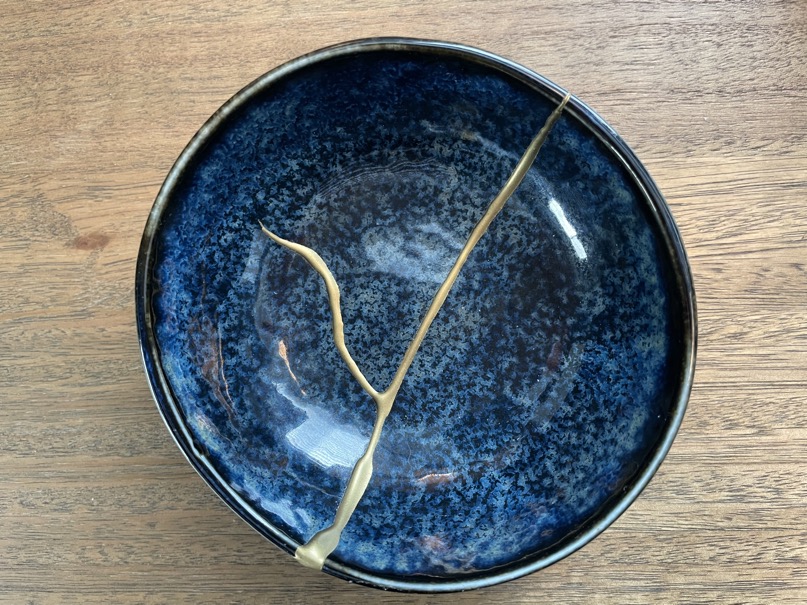AEDP INDIVIDUAL THERAPY IN FOLSOM
• Are you struggling with anxiety, depression, or chronic stress?
• Is it hard for you to talk about your feelings or needs?
• Do you have trouble finding or maintaining close relationships?
• Are you still suffering from an abusive or dysfunctional upbringing?
People seek counseling for many reasons. You may need support managing anxiety and stress, overcoming depression, building healthier relationships, learning to talk about your feelings and needs, or healing from a painful personal history. If you're interested in this kind of personal growth and self-exploration, I would love to help.
Good therapy can be a life-changing experience. In over fifteen years of clinical practice, I've seen how individual counseling can lead to deep healing and lasting changes in our relationships with ourselves and with others. I love the process of getting to know each of my clients and learning how to give each of them the support and feedback they need to heal and grow, and I feel privileged to be with them on their journeys of personal growth.
Please know, too, that I am an LGBT-friendly therapist who deeply values working with people of diverse racial and ethnic backgrounds. I understand and appreciate how broader issues of discrimination — such as homophobia, racism, and sexism — affect our well-being as individuals, and I welcome exploring that in our therapy together.
If you're interested in starting individual therapy, some of the things I can help you with are…
• Managing stress, anxiety, and conflict
• Letting go of depression, self-criticism, and low self-esteem
• Developing happy, close, meaningful relationships
• Building better communication and assertiveness skills
• Healing from trauma, abuse, or dysfunctional family experiences
• Exploring who you are and what you want from life
If you're looking for individual therapy in Folsom, or wondering if counseling could be right for you, please call or text me at 916.276.7709 for a free phone consultation. Let's work together to help you meet your goals.
WHAT IS ACCELERATED EXPERIENTIAL DYNAMIC PSYCHOTHERAPY (AEDP)?
“There is no better way to capture the ethos of AEDP than to say this: we try to help our patients and ourselves become stronger at the broken places. By working with trauma, loss, and painful consequences, we discover places that have always been strong, places that were never broken." — Dr. Diana Fosha, Founder of AEDP

Kintsugi is the Japanese pottery technique of repairing broken pieces of pottery with gold seams. This ancient art form eloquently expresses the idea that not only can something that's broken be repaired, but that it can be more beautiful for the experience, and actually more resilient in the places where it's been damaged. Like the calcium cuff that the body grows over a broken bone, a kintsugi bowl is stronger because it was broken.
In Accelerated Experiential Dynamic Psychotherapy (AEDP), we recognize that all of us have been broken at some point. We all carry hurts from our past, but AEDP asserts that we also have an inborn capacity to heal and grow from those hurts — to become "stronger at the broken places" — when we do it in connection with a truly safe, caring, and responsive person. In AEDP, the therapist works to create a warm and secure environment where your innate desire to grow and heal — to "self-right" — can be activated. To quote trauma specialist Joyelle Brandt, "Childhood trauma is relational. You can't heal relational trauma by yourself. It has to be healed in relation." From that foundation of security and openness, therapist and client can explore places that were too difficult to traverse alone.
AEDP is an emotion-focused, body-focused, experiential therapy. This means that, instead of doing cognitive, analytical work where we're challenging your false beliefs about your self or the world around you, we focus on your emotional and physical experience in the here-and-now. Staying in the present and staying with emotional processes vs. intellectually analyzing your experiences not only allows for us to move quickly (hence the word "Accelerated" in AEDP), it creates the right conditions for your brain to rewire itself, a process scientists call neuroplasticity.
Many of us know why we are the way we are intellectually, but that knowing doesn't change our brains — or our habitual responses. For example, you might have grown up with an angry dad, and now every time your partner gets angry, a part of your brain continues to respond as if it's something dangerous. That wounded, survival-oriented part of you repeatedly shuts you down and moves you away from your partner, even though you know you shouldn't do that. This painful lesson was first laid down in your brain via an emotional experience (your dad yelled). To truly "undo" and overwrite that learning, you can't just talk about it, you need to have what psychologists call a "corrective emotional experience," where the old music cues up, but this time it's a new dance, with a safe partner.
Feeling our feelings rather than avoiding them not only liberates us from needing to rely on a whole host of often self-defeating defenses, it helps us better know ourselves and express our needs so that we can live full, authentic lives and connect meaningfully with others. If you'd like to learn more about AEDP therapy or about working to reconnect with your core feelings, I often recommend that clients read the following books: Ron Frederick's Living Like You Mean It and Hilary Jacobs Hendel's It's Not Always Depression.

